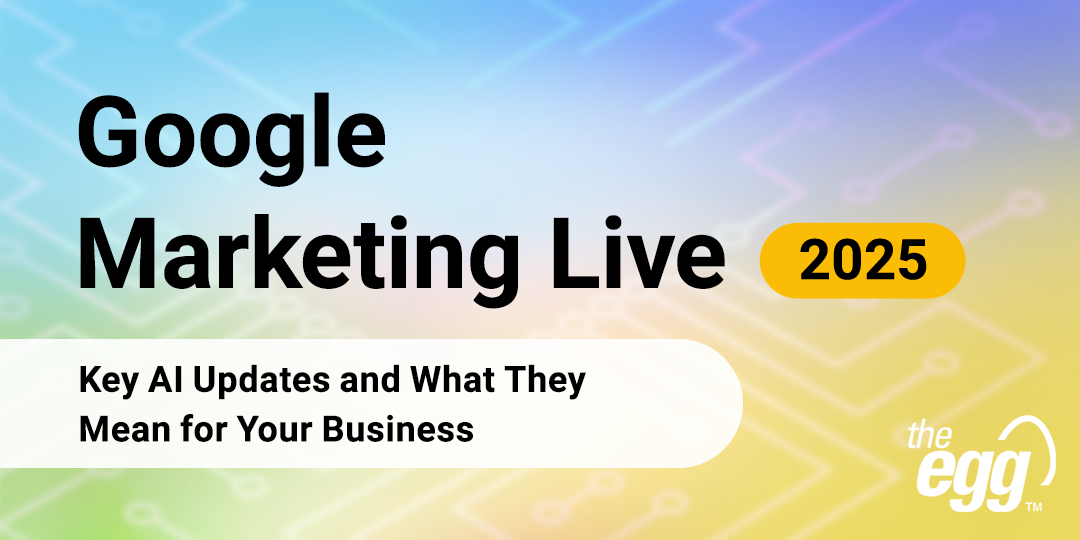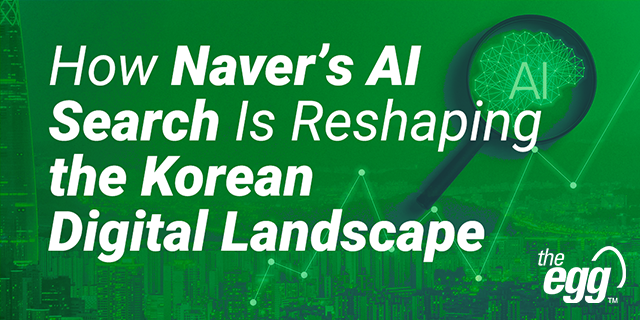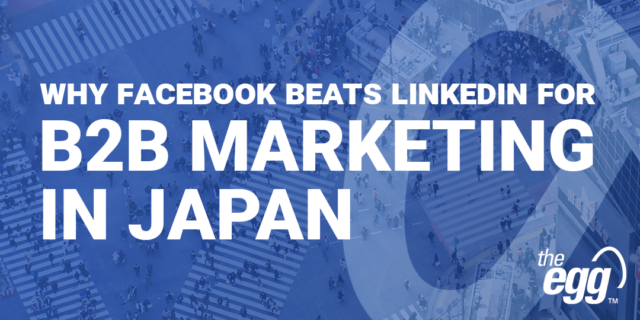Google Marketing Live 2025: Key AI Updates and What They Mean for Your Business

In today’s fast-paced digital landscape, staying ahead of industry shifts is crucial for maintaining a competitive edge. Google’s annual event, Google Marketing Live 2025, has once again demonstrated the pivotal role of AI. The message is clear: the future of advertising, fueled by AI, is already here.
The event showcased over 30 new AI-powered features and tools, ushering in an era where AI redefines ad creation, delivery, and measurement across the Google ecosystem.
These advancements challenge advertisers to shift from a traditional keyword-first approach to an intent-first mindset, creating strategic opportunities to redefine how brands reach and convert customers. For forward-thinking businesses, this presents a substantial strategic advantage.
At The Egg, we believe understanding these shifts is paramount to staying competitive and unlocking unprecedented efficiency and scalability in your marketing efforts.
Key Updates:
Out of all the new AI-powered features and tools, here are some of the most impactful announcements that will reshape advertising strategies:
The AI Overhaul: Search & Discovery Innovations
Google is embedding ads more seamlessly into its AI-powered search features, giving advertisers new high-visibility real estate and more discovery opportunities
- Expanded Ads in AI Overviews & AI Mode: Ads will now appear contextually within AI Overviews (AI-generated summaries) on both desktop and mobile in the U.S., with a broader rollout to select English-speaking markets later this year. Ads are also being tested in the conversational “AI Mode” powered by Gemini.
- Emphasis on Broad Match and Keywordless Targeting: To help advertisers reach potential customers with hidden/implicit commercial intent even from vague queries, only broad match keywords from Search and Shopping campaigns would be eligible for ads within AI Overview, alongside Performance Max and AI Max campaigns. This means ads can surface even from educational queries, transforming non-commercial intent into discovery opportunities.
- Smart Bidding Exploration: This new tool uses AI and flexible Return On Ad Spend (ROAS) targets to uncover previously overlooked search queries. It allows brands to capture more exploratory searches, broadening the scope of search engagements beyond narrow, high-intent terms, helping uncover hidden demand and drive more conversions.
Smarter Insights: Measurement & Data Advancements
Proving campaign impact and leveraging your own data are now more accessible than ever.
- Lowered Incrementality Testing Thresholds: Google dramatically reduced the minimum spend for incrementality testing from $100,000 to just $5,000. This democratizes access to precise ad effectiveness analysis, allowing more businesses to understand the true ROI of their advertising.
- Cross-Channel Measurement & Data Manager Updates: Deeper cross-channel insights are coming to Google Analytics, including impressions across Google properties and platforms like Reddit and Pinterest. New Data Manager tools allow you to collect first-party data from more sources (e.g., Salesforce, HubSpot, Shopify) and use it more effectively from a “one-stop data shop”.
Creative Revolution: AI-Powered Asset Generation
Google is making it easier and faster to produce high-quality ad creatives.
- Veo & Imagen AI Creative Tools: These new AI-powered media generation tools allow marketers to produce “polished ad assets” without needing a full production team. Veo generates video, and Imagen generates images, transforming static product images into dynamic visuals and effortlessly expanding video frames. These are already available in Merchant Center and coming soon to Google Ads.
- Product Studio Enhancements: This free suite of AI tools in Merchant Center now proactively analyzes real-time trends to suggest fresh campaign concepts, featured products, and discounts, streamlining e-commerce optimization.
Agentic AI: Your New Marketing Collaborators
AI is moving beyond suggestions to active execution.
- Marketing Advisor, Google Ads Expert, Google Analytics Expert: These AI-powered “agentic tools” are designed to act as “expert marketing guides” or “expert collaborators”. They can suggest and implement campaign optimizations, provide personalized recommendations, automatically set up ad groups, troubleshoot issues, and surface insights.
- What does “agentic” mean? In simple terms, “agentic” refers to the ability to act independently and make decisions. In AI, this means systems can perform tasks and make choices without constant human intervention.
Ready to stay ahead of the curve?
What This Means for Advertisers and Brands:
The introduction of these advanced AI tools marks a significant shift toward more dynamic and responsive advertising strategies, aimed at harnessing untapped potential throughout the marketing funnel.
[Strategic] From Keywords to Intent:
The focus on ads within AI Overviews, AI Mode, and Smart Bidding Exploration represents a strategic move from rigid keyword matching to understanding nuanced user intent with the assistance of AI. This move will open many new opportunities for advertisers to leverage non-commercial intent queries and connect with potentials customers earlier in their discovery journey.
[Strategic] Re-evaluation of Keyword Strategy:
The requirement of broad match and keywordless targeting for ads to appear within AI Overview will trigger a seismic shift in keyword strategy. Where the traditional best practice places a heavy reliance on exact and phrase keywords for control and efficiency, PPC practitioners must now learn to embrace broader targeting and rely on AI matching to interpret nuanced user intent. As targeting and reach expands, rigorous negative keyword management will become even more critical to maintain relevance and efficiency.
[Strategic] First-Party Data is Gold:
AI relies heavily on high-quality first-party data as a critical signal for enhancing smart bidding, audience targeting, and delivering AI-driven marketing outcomes. Investing in robust first-party data strategies isn’t just an option – it’s a necessity for gaining a competitive edge in the market.
[Creative] Scale with AI-Generated Assets:
Utilize tools like Veo, Imagen and Product Studio to generate a high volume of diverse video and image assets rapidly at scale. This enables dynamic visuals and personalized content.
[Skillset] Continuous Learning:
Marketers need to develop expertise in AI direction and prompt engineering, focusing on crafting effective prompts for AI tools. The focus shifts from manual creation to intelligent curation. The rapid pace of AI innovation means fostering a culture of continuous learning and adaptation to stay ahead.
[Operational] Strategic Oversight, Not “Set and Forget”:
While automation increases, you still need to provide strategic direction, review AI outputs, and apply controls. Regular review and approval of AI suggestions are crucial to ensure alignment with business objectives and prevent unintended consequences. (e.g. A critical challenge will be ensuring AI-generated creative aligns with your brand guidelines and voice.)
While increased automation and AI autonomy present new complexities and a “control dilemma,” they also unlock unparalleled opportunities for efficiency, scale, and deeper customer engagement.
__
The advances presented at Google Marketing Live 2025 highlight the increasingly autonomous and immersive capabilities of advertising tools. However, the true potential of these innovations is realized through the expert application of both AI and human strategy.
The imperative is clear: understand, adapt, and innovate to seize the AI opportunity. Let’s team up to explore how these cutting-edge tools can be tailored to meet your business goals, ensuring sustained growth and success in the evolving digital landscape.
__





